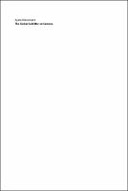Explore

The Global Cold War on Campus
Kyara Anne Klausmann
2023
0 Ungluers have
Faved this Work
Login to Fave
How and why did students at Kabul University engage in political activism or refrained from it between 1964 and 1992? Based on oral history interviews with former students, this book reveals how they – as many others around the world at the same time – were galvanized by and disappointed with promises of progress dominating local and international politics. During the 1960s, the international influences on campus encouraged students’ engagement with competing political ideologies. Collective student protest against the monarchy turned into hostilities between opposing political groups within the student body claiming to lead Afghanistan towards independence and prosperity. After the coup d’état by the People’s Democratic Party of Afghanistan (PDPA) in 1978, none of the ideologies which had previously incited students provided hope for a better future anymore. Many students who had fought for the PDPA earlier were repelled by the government’s violence and those who stood up against the regime were persecuted and fled the country. Overall, the dynamics of political activism at Kabul University reflect the deep intertwinement of the Global Cold War and local struggles for inclusion and independence. ; How and why did students at Kabul University engage in political activism or refrained from it between 1964 and 1992? Based on oral history interviews with former students, this book reveals how they – as many others around the world at the same time – were galvanized by and disappointed with promises of progress dominating local and international politics. During the 1960s, the international influences on campus encouraged students’ engagement with competing political ideologies. Collective student protest against the monarchy turned into hostilities between opposing political groups within the student body claiming to lead Afghanistan towards independence and prosperity. After the coup d’état by the People’s Democratic Party of Afghanistan (PDPA) in 1978, none of the ideologies which had previously incited students provided hope for a better future anymore. Many students who had fought for the PDPA earlier were repelled by the government’s violence and those who stood up against the regime were persecuted and fled the country. Overall, the dynamics of political activism at Kabul University reflect the deep intertwinement of the Global Cold War and local struggles for inclusion and independence.
This book is included in DOAB.
Why read this book? Have your say.
You must be logged in to comment.
Rights Information
Are you the author or publisher of this work? If so, you can claim it as yours by registering as an Unglue.it rights holder.Downloads
This work has been downloaded 47 times via unglue.it ebook links.
- 47 - pdf (CC BY-NC-ND) at Unglue.it.
Keywords
- Afghanistan
- Asian history
- Cold War
- General & world history
- History
- History of other lands
- Humanities
- Interdisciplinary Studies
- Islam
- Islamic life & practice
- Islamische Staaten
- Kabul
- Middle Eastern History
- Naher Osten
- Reference, information & interdisciplinary subjects
- Regional & national history
- Regional studies
- Religion & beliefs
- Religion: general
- Student movements
- thema EDItEUR::G Reference, Information and Interdisciplinary subjects::GT Interdisciplinary studies::GTM Regional / International studies
- thema EDItEUR::N History and Archaeology::NH History::NHB General and world history
- thema EDItEUR::N History and Archaeology::NH History::NHG Middle Eastern history
- thema EDItEUR::N History and Archaeology::NH History::NHQ History of other geographical groupings and regions
- thema EDItEUR::Q Philosophy and Religion::QR Religion and beliefs::QRA Religion: general
- thema EDItEUR::Q Philosophy and Religion::QR Religion and beliefs::QRP Islam::QRPP Islamic life and practice
- Transnationalität
Links
DOI: 10.1515/9783111150543Editions

